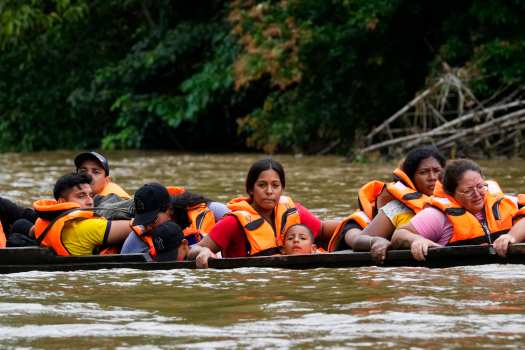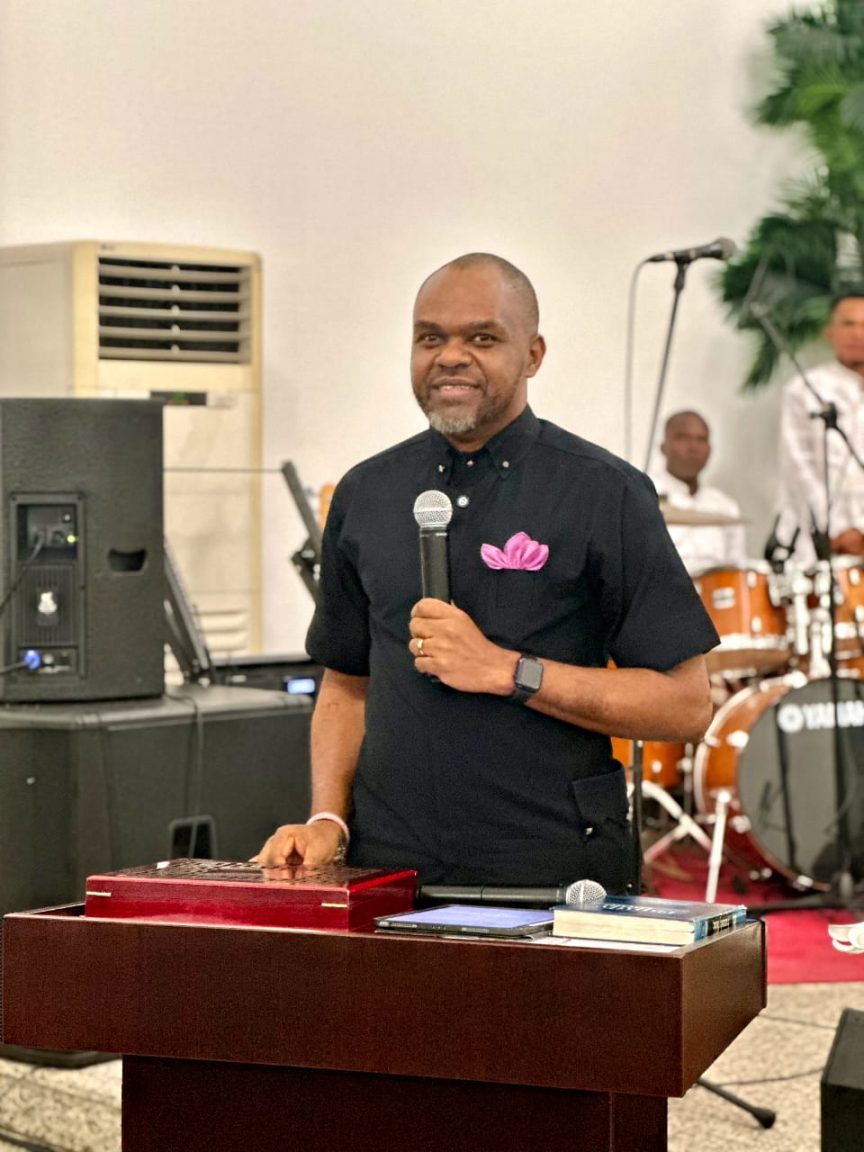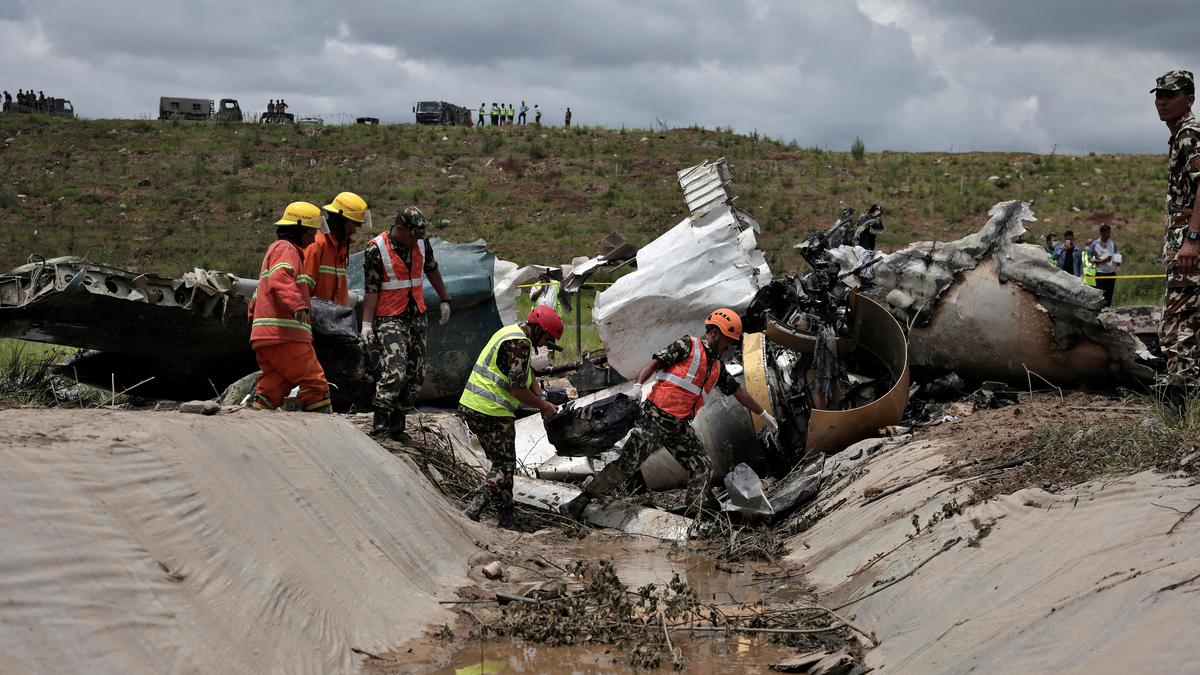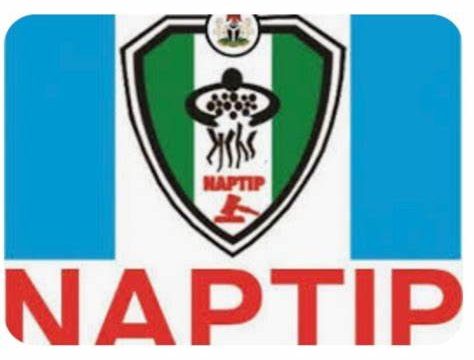Extreme poverty, lack of economic opportunities,corruption, worsening insecurity, as well as climate change-related pressure to migrate have increased Nigerians’ vulnerability to the trafficking of minors,BERTRAM NWANNEKANMA reports.
Over the years, trafficking of minors in Nigeria for domestic service, sex work, and forced surrogacy has remained a rampant and lucrative venture.
Oftentimes, children and young ones are tricked, forced, or persuaded to leave their homes, and when they comply, they are then moved somewhere else and exploited for someone else’s gains.
The current security situation in the country has not helped matters as there are about two million Internally Displaced Persons (IDPs) nationwide, and over 340,000 Nigerian refugees in other countries.
Many of these IDPs and refugees are vulnerable to traffickers due to their limited access to economic opportunities and formal justice systems.
Last year, the Federal Government identified 1,634 victims of trafficking, as against 935 in the previous year.
The victims include 394 minors, made up of 305 girls and 89 boys trafficked for sexual, labour, and other purposes.
The minors were parts of the 841 sex trafficking victims, 543 labour trafficking victims, and 250 victims of unspecified forms of trafficking.
A further breakdown of the 841 victims showed that women accounted for 763, four were men; 74 minors – 67 girls and seven boys.
According to the 2023 Trafficking in Persons Report for Nigeria compiled by the U.S. Office of State, out of the 543 labour trafficking victims, 183 were men, 290 were women, 70 were minors, 17 were boys, and 53 were girls.
Of the 250 victims of unspecified forms of trafficking, all were minors, including 65 boys and 185 girls.
The report noted that highly-organised criminal groups, sometimes linked to Nigerian cult organisations, or confraternities, are responsible for most sex trafficking to Europe.
Analysts are worried by emerging variants of abuse that children are subjected to in different parts of the country, including the South, especially in Lagos State, where it is becoming fashionable for some women to drug and “rent” their infants to street beggars, who then use these babies as tools to elicit sympathy from unsuspecting members of the public.
In schools, some children risk being exploited by their teachers. Businesses and local community members that are seeking cheap labour also resort to this.
Much of this is driven by poverty and a lack of opportunity for young girls, as well as, the demands of the illegal adoption market among others.
Children exploited by traffickers in forced labour are found in locations including granite quarries and artisanal mines, construction sites, agriculture fields, and transportation hubs, as well as engaged in street hawking and begging, and domestic services.
Recently, nine teenage girls trafficked to Ghana from Imo State were rescued and brought back to Nigeria. The girls, between ages 15 and 18, were lured into prostitution in the neighbouring country.
They were reportedly rescued by the Nigerians in the Diaspora Organisation (NIDO), and handed over to law enforcement in Ghana.
Chairperson of NiDCOM, Abike Dabiri-Erewa, confirmed that the suspected trafficker had been arrested.
Giving an update on the matter via X, the commission said the girls arrived at the Murtala Muhammed International Airport, Lagos, recently, and were received by the NiDCOM chairperson; the Deputy Speaker of the Imo House of Assembly, Chyna Iwuanyanwu, and the Imo State Commissioner for Women’s Affairs, Nkechinyere Ugwu.
After the rescue of the girls in Ghana, a joint operation between the Nigerian Embassy, in Dakar and a Senegalese NGO, “Free the Slaves” (La Lumiere in French) also resulted in the rescue of another 24 Nigerian girls from sexual exploitation in the Tamaccounda and Kedougou regions of Senegal.
The collaborative effort successfully freed the girls from their exploitative situation.
According to the country’s acting Ambassador to Senegal, Salihu Abubakar, the victims, mostly girls and women aged between 11 and 24, but predominantly underage girls, were trafficked to Senegal through Cotonou, in the Benin Republic, via the Mali-Senegal border for sexual exploitation.
“These girls and many more are being trafficked to Senegal through Cotonou, Benin Republic via Mali to the Senegal border for prostitution,” he said.
Abubakar explained that preliminary investigations indicate that the majority of the girls and women were school dropouts from Edo and Delta states, with a few others from Imo, Abia, and two from Plateau states.
Abubakar confirmed that out of the 24 girls and women, 22 had been repatriated weeks earlier, while the remaining two returned safely to Nigeria afterward.
However, the diplomat did not disclose the health status of the victims and details regarding the duration of their exploitation.

He emphasised that the successful repatriation highlights the strong international cooperation between the embassy and the NGO, in combating human trafficking.
The Founder of an anti-trafficking non-governmental organisation, Cocreate Humanitarian Aid, Dr Sarah Adeyinka, said that over 1,000 people rescued by her organisation fell into these categories.
While calling for more awareness, Adeyinka, a post-doctoral researcher at the University of Amsterdam said: “There are places where people still don’t believe that child trafficking is happening, or that they are being trafficked. Some that know that it’s happening do not care because they think that the person that is promising them a better life cannot betray them,” she said.
Last year, the Federal Ministry of Labour and Employment said it conducted 17,026 labour inspections and found 2,274 violations of child labour laws. The ministry also removed 475 children from potential trafficking conditions compared to 1,193 children removed from potential trafficking conditions during the previous year.
According to the Director-General of the National Agency for the Prohibition of Trafficking in Persons (NAPTIP), Prof. Fatima Waziri-Azi, the agency has identified emerging trends and patterns in human trafficking for 2023, to include labour and sexual exploitation in Iraq, mostly to Baghdad, and Basra through peer-to-peer communication; recruitment for organ harvesting, sextortion, and human trafficking fueled cyber-fraud.
Sharing further information on the agency’s operations in 2023, Prof. Waziri-Azi said that the agency received and investigated 968 human trafficking complaints. Internal trafficking complaints amounted to 507 (68.1), while external trafficking complaints were 303 (31.9).
She stressed that the agency rescued, received, and supported 2,112 victims (473 males and 1,639 females), with females constituting 77.6 per cent of the total victims out of which 43.4 per cent were children.
Waziri-Azi added that the rescued and received 47 victims of inward trafficking mostly came from West African countries, even as she identified Benue State as having the highest number of indigenes rescued in 2023 followed by Edo, Ondo, and Akwa Ibom states.
To curb the menace, the government through the Trafficking in Persons Law Enforcement and Administration Act (TIPLEAA) (as amended) in 2015, criminalised sex trafficking and labour trafficking, prescribing a minimum penalty of two years imprisonment, and a fine of N250,000 ($568) for both sex and labour trafficking; the minimum penalty for sex trafficking involving a child is seven years imprisonment and a fine of N1 million ($2,270).
Last year, the government initiated investigations into 1,242 cases, including 511 sex trafficking cases, 282 labor trafficking cases, and 449 cases of unspecified forms of trafficking. This is compared to initiating investigations into 852 cases during the previous reporting period.
The government also initiated the prosecution of 78 suspects, including 67 suspects for sex trafficking, and 11 suspects for labour trafficking. It continued prosecuting 35 suspects for unspecified forms of trafficking from previous reporting periods.
In recent times, the government has also secured the conviction of 97 individuals, 50 for sex trafficking, six for labour trafficking, and 41 for unspecified forms of trafficking.
Of those convicted, 94 were convicted under the 2015 TIPLEAA, and three were convicted under the Violence Against Persons laws (VAAP).
The NAPTIP DG said that the Federal Government, through her agency so far secured 14 convictions in 2024, with 243 cases pending before various courts across the country.
Although the Federal Government has stepped up efforts in tackling the menace compared to the previous years, it has not fully met the minimum standards for the elimination of trafficking in persons.
These efforts include investigating more traffickers, including officials allegedly complicit in trafficking crimes, and increasing prosecutions and convictions; identifying more victims and referring all identified victims to care, and finalising/implementing the handover protocol to refer child soldiers, including some trafficking victims to care.
The Federal Government has also updated its National Referral Mechanism (NRM) to include guidance on assisting persons with disabilities and adopted a disability inclusion plan to better serve trafficking victims.
However, the trend is getting more worrisome as the trafficking of minors, which was once only prevalent in states like Edo, Delta, and Benue, is spreading over the country.
As the government sustains efforts towards stopping traffickers on their tracks, a psychiatrist at the Lagos University Teaching Hospital, Dr Babatunde Fadipe, cautioned that victims of human trafficking can experience a wide range of psychological problems ranging from anger to anxiety, and depression.
Also, the Executive Director of Centre for the Advancement and Protection of the Rights of Vulnerable People (CAPRIGHTS-VP), Clara Kanu, described the trafficking of minors as a violation of human rights, and a crime against one of the most vulnerable groups in our society.
This, she said, was because those trafficked, whose ages range from 11 years and above, are usually orphans; from poor homes, or those who ran away from home for one reason or the other.
“Thus, these characteristics put them within the vulnerable category. This despicable practice thrives due to poverty, lack of education, deception, social inequality, and weak legal framework,” she said.
Kanu called for a sustainable collaboration involving all critical stakeholders- the government, NGOs, faith-based organisations, and traditional institutions to end the menace.
She said these minors are exploited by people who promise them better opportunities, or who coerce them through deception, threats, or outright force.
“These critical stakeholders must all come together to co-create solutions that can work effectively. Specific actions to be taken could include- education and awareness raising; prosecution of traffickers; and strengthening collaborative relationships between key stakeholders’ platforms- between governments, NGOs, and communities.
“We are currently implementing a project with support from the Freedom Fund targeting exploitative child domestic work, which has a strong relationship with child trafficking because some of these children are trafficked from rural areas to major cities in Nigeria,” she said.
Kanu continued: “Our experience with this programme shows that most of these children come from disadvantaged backgrounds, making them easy targets for traffickers. Our programmes over the years have always targeted the protection and safeguarding of children. We believe that the efforts of NGOs in this area complement the work of government agencies like NAPTIP to a great extent.
“Government agencies, particularly NAPTIP, are trying in their efforts to combat trafficking, however, more needs to be done. There is a need for better enforcement of existing laws and increased collaboration among agencies at all levels,” she added.


















